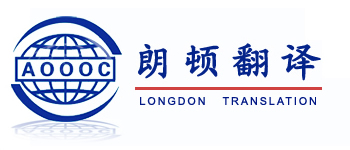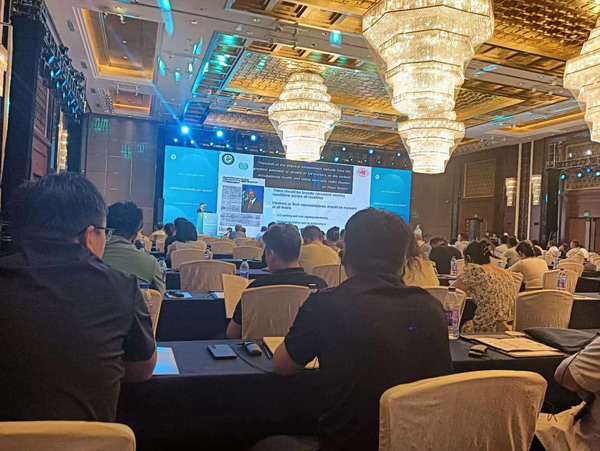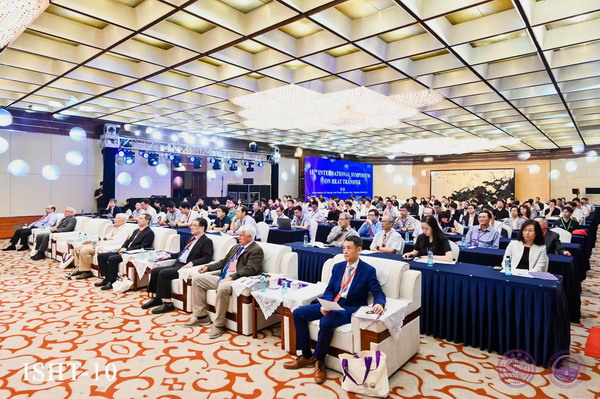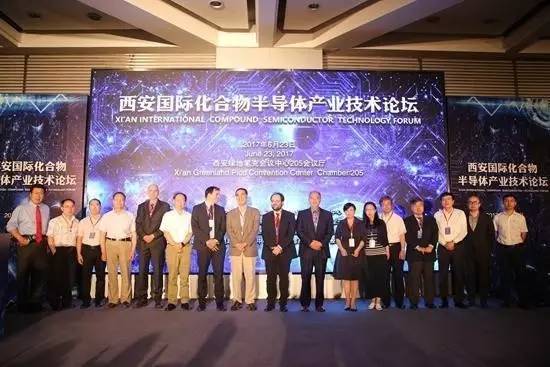US President Donald Trump rejected suggestions that he had abandoned hope that Xi Jinping could help him deal with the North Korean nuclear threat, as he prepared to meet the Chinese president at the G20 summit in Hamburg.
├└ć°(gu©«)┐éĮy(t©»ng)╠Ų╝{Ą┬?╠ž└╩Ųš(Donald Trump)ʱšJ(r©©n)┴╦╦¹ęčĘ┼Śē┴Ģ(x©¬)Į³ŲĮĢ■(hu©¼)Ä═ų·╦¹æ¬(y©®ng)ī”(du©¼)│»§r║╦═■├{Ą─ŽŻ═¹Ą─░Ą╩ŠĪŻ─┐Ū░Ż¼╠ž└╩Ųšš²£╩(zh©│n)éõį┌Øh▒żĄ─Č■╩«ć°(gu©«)╝»łF(tu©ón)(G20)ĘÕĢ■(hu©¼)╔ŽĢ■(hu©¼)╬Ņ▀@╬╗ųąć°(gu©«)ć°(gu©«)╝ęų„Ž»ĪŻ
Speaking before a dinner with Japanese Prime Minister Shinzo Abe and South Korean President Moon Jae-in in Hamburg in the wake of North KoreaĪ»s long-range ballistic missile test this week, Mr Trump on Thursday said Ī░never give upĪ▒ when asked whether he no longer placed any faith in the Chinese leader.
į┌│»§r▒Šų▄įć╔õ▀h(yu©Żn)│╠ÅŚĄ└ī¦(d©Żo)ÅŚ║¾Ż¼ų▄╦─į┌Øh▒ż┼c╚š▒Š╩ūŽÓ░▓▒ČĢx╚²(Shinzo Abe)║═Ēnć°(gu©«)┐éĮy(t©»ng)╬─į┌ę·(Moon Jae-in)Š═▓═Ū░Ż¼╠ž└╩Ųš░l(f©Ī)▒Ē┴╦ųvįÆĪŻį┌▒╗å¢╝░╦¹╩Ūʱ▓╗į┘ŽÓą┼ųąć°(gu©«)ŅI(l©½ng)ī¦(d©Żo)╚╦Ģr(sh©¬)Ż¼╠ž└╩Ųš▒Ē╩Š╦¹Ī░Å─╬┤Ę┼ŚēĪ▒ĪŻ
The comments appeared to contradict previous remarks where he said China had failed to put sufficient pressure on North Korea to change the direction of Kim Jong UnĪ»s regime, which has conducted regular missile tests and this week demonstrated the potential capability to strike Alaska. Before leaving Washington for Poland and Hamburg, Mr Trump tweeted: Ī░Trade between China and North Korea grew almost 40% in the first quarter. So much for China working with us Ī¬ but we had to give it a try!Ī▒
▀@ę╗čįšō╦Ų║§┼cų«Ū░Ą─šfĘ©├¼Č▄ĪŻ╠ž└╩Ųšį°▒Ē╩ŠŻ¼ųąć°(gu©«)╬┤─▄ī”(du©¼)│»§r╩®╝ėūŃē“ē║┴”Ż¼ęį┴ŅĮš²Č„«ö(d©Īng)ŠųĖ─ūāŲõš■▓▀ĘĮŽ“ĪŻŠ═į┌▒Šų▄Ż¼Įš²Č„«ö(d©Īng)ŠųīŹ(sh©¬)╩®┴╦│ŻęÄ(gu©®)ī¦(d©Żo)ÅŚįć“×(y©żn)Ż¼’@╩Š┴╦┤“ō¶░ó└Ł╦╣╝ėĄ─Øōį┌─▄┴”ĪŻŠ═į┌ļxķ_╚A╩óŅD╚ź▓©╠m║═Øh▒żŪ░Ż¼╠ž└╩Ųšį°į┌TwitterŠW(w©Żng)šŠ░l(f©Ī)╬─ĘQŻ║Ī░Į±─ĻĄ┌ę╗╝ŠČ╚ųą│»┘Q(m©żo)ęūį÷ķL(zh©Żng)Į³40%ĪŻųąć°(gu©«)┼c╬ęéāĄ─║Žū„Š═Ą├ĄĮ▀@śėĄ─ĮY(ji©”)╣¹Ī¬Ī¬▓╗▀^╬ęéā▀Ć╩ŪĄ├įćę╗įćĪŻĪ▒
US-China relations entered a more co-operative phase earlier this year after Mr Trump hosted Mr Xi in Florida, and later described his Chinese counterpart as a Ī░great guyĪ▒ who would persuade Mr Kim to abandon his missile and nuclear programmes.
Į±─Ļįńą®Ģr(sh©¬)║“Ż¼├└ųąĻP(gu©Īn)ŽĄ▀M(j©¼n)╚ļ┴╦║Žū„ąįĖ³ÅŖ(qi©óng)Ą─ļAČ╬ĪŻ┤╦Ū░Ż¼╠ž└╩Ųšį┌Ę┴_└’▀_(d©ó)Įė┤²┴╦┴Ģ(x©¬)Į³ŲĮŻ¼▓óį┌ų«║¾ĘQ┴Ģ(x©¬)Į³ŲĮ╩ŪéĆ(g©©)Ī░║▄░¶Ą─╝ę╗’Ī▒Ż¼▒Ē╩Š┴Ģ(x©¬)Į³ŲĮĢ■(hu©¼)ä±Įš²Č„Ę┼Śēī¦(d©Żo)ÅŚ╝░║╦╬õŲ„ėŗ(j©¼)äØĪŻ
While US officials concede that China has increased its pressure on North Korea, they are frustrated that Beijing has balked at doing more Ī¬ concerns exacerbated by North KoreaĪ»s intercontinental ballistic missile launch.
▒M╣▄├└ć°(gu©«)╣┘åT│ąšJ(r©©n)ųąć°(gu©«)╝ė┤¾┴╦ī”(du©¼)│»§rĄ─ē║┴”Ż¼ī”(du©¼)ė┌▒▒Š®ĘĮ├µī”(du©¼)▓╔╚ĪĖ³ČÓ┤ļ╩®Ą─¬qįź▓╗øQŻ¼╦¹éāģs╩«Ęų▓╗ØMĪ¬Ī¬│»§r░l(f©Ī)╔õų▐ļHÅŚĄ└ī¦(d©Żo)ÅŚ╝ėäĪ┴╦▀@ĘNō·(d©Īn)ænĪŻ
Over the past week, the US has taken punitive measures against China, including sanctioning two Chinese individuals and notifying a Chinese bank that it would be unable to access the US financial system because of accusations that the institution was helping North Korea to launder money. Mr Trump also agreed a $1.4bn arms sales package to Taiwan Ī¬ a move that angered China, which claims the island as part of its territory.
Š═į┌╔Žų▄Ż¼├└ć°(gu©«)▓╔╚Ī┴╦ßśī”(du©¼)ųąć°(gu©«)Ą─æ═┴Pąį┤ļ╩®Ż¼Ųõųą░³└©ųŲ▓├ā╔├¹ųąć°(gu©«)éĆ(g©©)╚╦Ż¼▓ó═©ų¬ę╗╝ęųą┘YŃyąąŻ¼▒Ē╩Šįōąąė╔ė┌į┌Ä═ų·│»§rŽ┤ÕXČ°▒╗Į¹ų╣įLå¢├└ć°(gu©«)Į╚┌¾wŽĄĪŻ╠ž└╩Ųš▀Ćį°┼·£╩(zh©│n)ę╗╣P14ā|├└į¬Ą─ī”(du©¼)┼_(t©ói)▄Ŗ╩█ĘĮ░ĖĪ¬Ī¬┤╦┼e╝ż┼Ł┴╦┬ĢĘQ┼_(t©ói)×│╩ŪŲõŅI(l©½ng)═┴ę╗▓┐ĘųĄ─ųąć°(gu©«)ĪŻ
North Korea is expected to be high on the agenda when Mr Trump meets the other G20 leaders in Hamburg, and particularly when he meets RussiaĪ»s President Vladimir Putin on Friday and Mr Xi the following day. China and Russia have expressed concern at some of the language coming from America, which has created the impression that the US is edging closer to taking military action.
«ö(d©Īng)╠ž└╩Ųšį┌Øh▒żĢ■(hu©¼)╬ŅŲõ╦¹G20ŅI(l©½ng)ī¦(d©Żo)╚╦Ģr(sh©¬)Ż¼│»§rŅA(y©┤)ėŗ(j©¼)Ģ■(hu©¼)╩ŪĢ■(hu©¼)šäųąĄ─ų„ę¬ūhŅ}Ī¬Ī¬ė╚Ųõ╩Ū«ö(d©Īng)╠ž└╩Ųšų▄╬ÕĢ■(hu©¼)ęŖČĒ┴_╦╣┐éĮy(t©»ng)Ėź└Ł╗∙├ūĀ¢?ŲšŠ®(Vladimir Putin)╝░į┌ļS║¾ę╗╠ņĢ■(hu©¼)ęŖ┴Ģ(x©¬)Į³ŲĮĢr(sh©¬)ĪŻųąČĒā╔ć°(gu©«)į°ī”(du©¼)├└ć°(gu©«)ĘĮ├µĄ─▓┐Ęų┤ļ▐o▒Ē▀_(d©ó)▀^ō·(d©Īn)ænŻ¼ę“?y©żn)ķ▀@ą®▒ĒæB(t©żi)┴Ņ╚╦«a(ch©Żn)╔·┴╦├└ć°(gu©«)š²ė·░l(f©Ī)ĮėĮ³▓╔╚Ī▄Ŗ╩┬╩ųČ╬Ą─ėĪŽ¾ĪŻ
Ī░We are at a pivot point. If Xi agrees to up the pressure on North Korea, US-China ties will be back on track and Trump will give China a better trade deal. From TrumpĪ»s perspective, the ball is in XiĪ»s court,Ī▒ said Bonnie Glaser, a China expert at the Center for Strategic and International Studies in Washington. Ī░There is a positive path forward that serves both countries interests. Xi might want to buy time at least until after the 19th Party Congress (later this year).Ī▒
╚A╩óŅDæ(zh©żn)┬į┼cć°(gu©«)ļH蹊┐ųąą─(Center for Strategic and International Studies)ųąć°(gu©«)īŻ╝ęĖ╚Rāx(Bonnie Glaser)▒Ē╩ŠŻ║Ī░╬ęéāš²╠Äė┌ę╗éĆ(g©©)▐D(zhu©Żn)š█³c(di©Żn)ĪŻ╚ń╣¹┴Ģ(x©¬)Į³ŲĮ═¼ęŌ╝ė┤¾ī”(du©¼)│»§rē║┴”Ż¼├└ųąĻP(gu©Īn)ŽĄīóųžĘĄš²▄ēŻ¼╠ž└╩Ųšīó┼cųąć°(gu©«)║×╩Ė³║├Ą─┘Q(m©żo)ęūģf(xi©”)ūhĪŻį┌╠ž└╩Ųš┐┤üĒŻ¼Ū“į┌┴Ģ(x©¬)Į³ŲĮę╗▀ģĪŻ═¼Ģr(sh©¬)Ę¹║Ž├└ųąā╔ć°(gu©«)└¹ęµĄ─ĘeśOĄ└┬Ę╩Ū┤µį┌Ą─ĪŻ┴Ģ(x©¬)Į³ŲĮę▓įSŽŻ═¹ĀÄ(zh©źng)╚Īę╗Č╬Ģr(sh©¬)ķgŻ¼ų┴╔┘═Ų▀tĄĮŻ©Į±─ĻĄūĄ─Ż®ųą╣▓╩«Š┼┤¾ĪŻĪ▒
James Mattis, US defence secretary, said on Thursday that the latest North Korean test did not bring the US closer to war. His comments came a day after Nikki Haley, US ambassador to the UN, said the diplomatic path was narrowing and the US would use military force if there was no other choice.
ų▄╦─Ż¼├└ć°(gu©«)ć°(gu©«)Ę└▓┐ķL(zh©Żng)š▓─Ę╦╣?±RĄ┘╦╣(James Mattis)▒Ē╩ŠŻ¼│»§rūŅą┬ī¦(d©Żo)ÅŚįć╔õ▓ó╬┤┴Ņ├└ć°(gu©«)Ė³ĮėĮ³ķ_æ(zh©żn)ĪŻČ°Š═į┌╦¹░l(f©Ī)▒Ē▀@Ę¼čįšōę╗╠ņŪ░Ż¼├└ć°(gu©«)±v┬ō(li©ón)║Žć°(gu©«)(UN)┤¾╩╣─ß╗∙?║┌└¹(Nikki Haley)į°▒Ē╩ŠŻ¼═ŌĮ╗╬ėą²Ą─Ą└┬Ęš²į┌ūāĄ├¬MšŁŻ¼╚ń╣¹ø]ėąŲõ╦¹▀xĒŚ(xi©żng)Ż¼├└ć°(gu©«)╗“äė(d©░ng)ė├▄Ŗ╩┬┴”┴┐ĪŻ
Ī░I do not believe this capability in itself brings us close to war because the presidentĪ»s been very clear, and secretary of stateĪ»s been very clear that we are leading with diplomatic and economic efforts,Ī▒ said Mr Mattis.
±RĄ┘╦╣▒Ē╩ŠŻ║Ī░╬ę▓╗šJ(r©©n)×ķ▀@ĘN─▄┴”▒Š╔ĒĢ■(hu©¼)┴Ņ╬ęéāĮėĮ³æ(zh©żn)ĀÄ(zh©źng)Ż¼ę“?y©żn)ķ┐éĮy(t©»ng)ę╗ų▒║▄ŪÕ│■Īóć°(gu©«)äš(w©┤)Ūõę▓ę╗ų▒║▄ŪÕ│■Ż¼╬ęéāĢ■(hu©¼)ęį═ŌĮ╗║═Įø(j©®ng)Ø·(j©¼)┼¼┴”×ķŽ╚ĪŻĪ▒
Speaking in Poland before he flew to Hamburg, Mr Trump warned that he was considering Ī░severeĪ▒ actions in response to North Korea. Mr Mattis said the US was working with the Chinese to tackle the problem, but added: Ī░Any kind of effort by North Korea to start a war would lead to severe consequences.Ī▒
į┌’wĖ░Øh▒żŪ░į┌▓©╠mĄ─ųvįÆųąŻ¼╠ž└╩ŲšŠ»ĖµĘQ╦¹į┌┐╝æ]ęįĪ░ć└(y©ón)ģ¢Ī▒┤ļ╩®╗žæ¬(y©®ng)│»§rĪŻ±RĄ┘╦╣▒Ē╩ŠŻ¼├└ć°(gu©«)š²į┌┼cųąć°(gu©«)╚╦║Žū„æ¬(y©®ng)ī”(du©¼)▀@ę╗å¢Ņ}Ż¼▓╗▀^╦¹▀Ć▒Ē╩ŠŻ║Ī░│»§r╚╬║╬░l(f©Ī)äė(d©░ng)æ(zh©żn)ĀÄ(zh©źng)Ą─Ų¾łDČ╝┐╔─▄ī¦(d©Żo)ų┬ć└(y©ón)ųž║¾╣¹ĪŻĪ▒
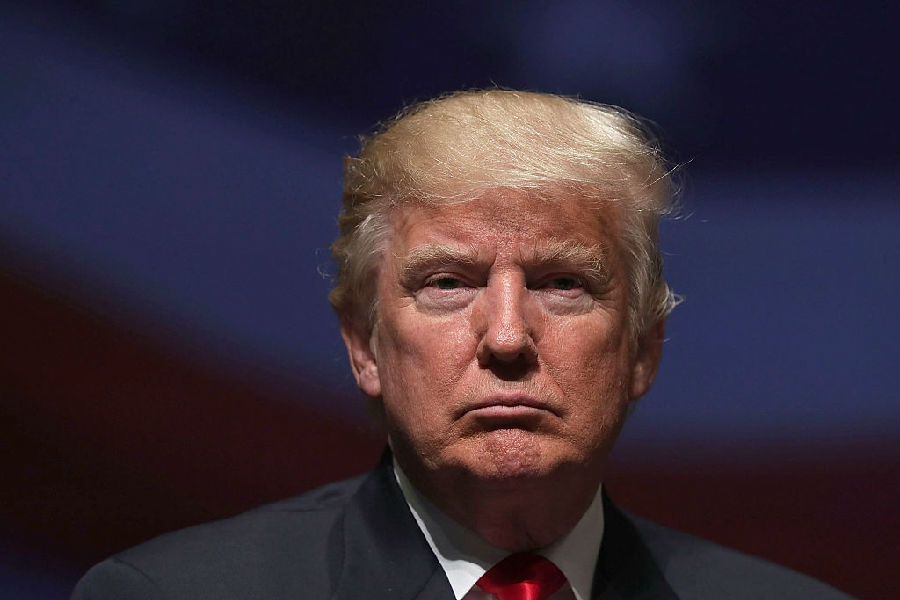
The defence secretary also pushed back against the idea that North Korea had crossed a red line by launching an ICBM, which was something that Mr Mattis and Mr Trump had both said the US would not allow to happen.
±RĄ┘╦╣▀Ʊg│Ō┴╦│»§r░l(f©Ī)╔õų▐ļHÅŚĄ└ī¦(d©Żo)ÅŚ╩ŪįĮ▀^╝tŠĆĄ─┐┤Ę©ĪŻ┤╦Ū░Ż¼±RĄ┘╦╣║═╠ž└╩ŲšČ╝į°▒Ē╩Š├└ć°(gu©«)▓╗Ģ■(hu©¼)į╩įS│»§rįĮ▀^╝tŠĆĪŻ
Ī░President Trump has made it clear, we donĪ»t set red lines, we deal with reality, and weĪ»ll deal with any reality. And we have the capability to do so in league with our allies.Ī▒
Ī░╠ž└╩Ųš┐éĮy(t©»ng)ęč├„┤_▒Ē╩ŠŻ¼╬ęéā▓ó╬┤įO(sh©©)ų├╝tŠĆŻ¼╬ęéāæ¬(y©®ng)ī”(du©¼)Ą─╩Ū¼F(xi©żn)īŹ(sh©¬)Ż¼╬ęéāĢ■(hu©¼)æ¬(y©®ng)ī”(du©¼)╚╬║╬¼F(xi©żn)īŹ(sh©¬)ŪķørĪŻ═©▀^┼c╬ęéāĄ─├╦ėč║Žū„Ż¼╬ęéāėą─▄┴”ū÷ĄĮ▀@ę╗³c(di©Żn)ĪŻĪ▒
John Park, head of the Korea working group at Harvard UniversityĪ»s Kennedy School of Government, said the US could step up efforts to target money that the North Korean regime keeps in China. Ī░The North Korean regime amassed large slush funds from the massive coal trade during the second half of the 2000s. The regime draws on those funds Ī¬ which are onshore in China Ī¬ to finance specialised procurement for the nuclear and ballistic missile programmes.Ī▒
╣■Ę┤¾īW(xu©”)(Harvard University)┐Ž─ߥŽš■Ė«īW(xu©”)į║(Kennedy School of Government)Ēnć°(gu©«)蹊┐ąĪĮMžō(f©┤)ž¤(z©”)╚╦╝s║▓?┼┴┐╦(John Park)▒Ē╩ŠŻ¼├└ć°(gu©«)╗“┐╔ęįßśī”(du©¼)│»§r«ö(d©Īng)Šų┴¶į┌ųąć°(gu©«)Ą─┘YĮ╝ė┤¾┼¼┴”ĪŻĪ░│»§r«ö(d©Īng)Šųį┌2005ų┴2010─ĻŲ┌ķg═©▀^┤¾ęÄ(gu©®)─Ż├║╠┐┘Q(m©żo)ęūĘe└█┴╦┤¾┴┐ė├ė┌ĘŪĘ©─┐Ą─Ą─┘YĮĪŻ╦³į┌└¹ė├▀@ą®╬╗ė┌ųąć°(gu©«)Š│ā╚(n©©i)Ą─┘YĮŻ¼ķ_š╣ī”(du©¼)║╦ėŗ(j©¼)äØ║═ÅŚĄ└ī¦(d©Żo)ÅŚėŗ(j©¼)äØĄ─īŻķT╗»▓╔┘Å(g©░u)ĪŻĪ▒
